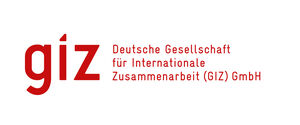ISVC Meeting 2018
Managing Towards Sustainable Multinational Multi-Tier Value Chains
Monday, 18 June 2018, Haus am Dom, Frankfurt am Main, Germany
For program details, please click on Program
The ISVC Meeting 2018 was organized in cooperation with
At the ISVC Meeting renown experts with various backgrounds and perspectives gathered to openly discuss sustainability challenges in global value chains.
With its exceptional conference format, enabling maximum open interaction, every participant became an important contributor. Its focus on workshops and panel discussions allowed comprehensive issue coverage and joint solution development. The ISVC Meeting's core objective was to nourish discussions beyond mainstream to eventually develop and agree on action plans that make a difference to the world.
The ISVC Meeting of the International Forum on Sustainable Value Chains
The ISVC Meeting as interactive discussion platform addressed some of the most relevant challenges to sustainability in multinational multi-tier value chains these days:
(1) How will further progress in automation, robotics and digitalization change value chains, and how will this effect prosperity, inequality and environmental challenges?
(2) How can organizations craft individual corporate value chains that offer more unique and thus higher consumer value while being more sustainable?
(3) How can organizations explore their corporate value chains, and based on the results draw maps that are meaningful and easily interpretable?
(4) How can organizations shift management attention from monitoring and risk evaluations towards establishing truly sustainable value chains?
(5) How can procurement organizations integrate corporate sustainability targets and commitments into their regular structures, processes, and objectives?
The ISVC Meeting brought together a selected group of well-experienced senior managers (supply chain, procurement, CSR etc.) of manufacturers, producers, traders as well as senior representatives of regulators, non government organizations, civil society and academia by personal invitation.
A Unique Conference Format
The ISVC Meeting is a platform for open equal discussion among all participants and speakers. It puts major focus on honest, critical discourse and constructive workshops to allow maximum interaction and joint development of alternative solutions. Participants and speakers are encouraged to share their true experiences and to point out contradictory or ambiguous know-how.
The meeting objectives were future oriented: Discussions in the workshops bundled into compelling project proposals detailing the challenges addressed, the targeted outcomes, the suggested way forward and the recommended leadership. It brought together motivated individuals and formed project groups that drive development and implementation. At ISVC, we want to be measured against realized fundamental change in business practices.
Key Notes and Panel Discussions
The two key notes give concise introductions to the conference theme. They provide show case examples and exceptional insights from leading experts in the field. Each key note is followed by a panel discussion of renown experts with differing perspectives. Their opinions further enrich the key note topic and trigger inspiration for the the subsequent open discussion with all conference participants.
Key Note Speakers
Frank Dassler, Representative for Governmental Relations (emeritus), adidas: ”Technological developments, reshoring and global value chains in the sporting goods industry"
Guya Merkle Owner, Vieri & Founder, Earthbeat Foundation ”Crafting what makes us different: Our value chain"
Workshops
Workshops were the heart of the ISVC Annual Meeting. All participants and speakers jointly analyzed challenges and experiences, developed and evaluated potential solutions, and sketched plans on how to create and implement required knowledge, organizational elements, policies, tools etc. ISVC follows up on the developed proposals by establishing specific projects. Participants are invited to engage in those projects.
Workshop 1: Automation Transforming Value Chains towards Sustainability
chaired by Prof. Dr. Joseph Sarkis, Worcester Polytechnic Institute
Developments in automation and robotics suggest rendering repetitive tasks in today’s jobs obsolete, causing tectonic shifts in human labor, while digitalization leads to new highly efficient value chain setups. How can organizations use these changes to better meet their environmental and social responsibility, in particular tackling inequality?
Workshop 2: Crafting Unique Corporate Value Chains
chaired by Prof. Dr. Madeleine Pullman, Portland State University and Tobias Streich, Transparency-One
Many brands differentiate by the story they tell about the creation or use of their products and services, pointing stakeholders to the uniqueness of their value chains and the actors involved therein. How can organizations craft individual corporate value chains that offer more unique and thus higher consumer value while being more sustainable?
Workshop 3: Drawing Meaningful Value Chain Maps
chaired by Prof. Dr. K. Kathy Dhanda, Sacred Heart University and Dr. Moritz Nill, Systain
Organizations’ (and public) knowledge about the value chains of the goods and services they procure or sell, the sectors, regions, individual actors and their respective relationships is scarce. How can organizations explore their corporate value chains, and based on the results draw maps that are meaningful and easily interpretable?
Workshop 4: Upgrading from Massive Supply Chain Auditing
chaired by Prof. Dr. Nicole Darnall, Arizona State University
Many Western organizations require actors in their value chains to be formally audited upon specified social or environmental criteria. Yet, the realized improvements still lack behind the targeted goals. How can organizations shift management attention from monitoring and risk evaluations towards establishing truly sustainable value chains?
Workshop 5: Integrating Sustainability into Regular Procurement
chaired by Prof. Dr. Mark Pagell, University College Dublin; Prof. Dr. Mike Wasserman, FH Münster
Procurement has been actively upgraded to become the central unit responsible for the buyer-supplier-interface and the supply chain. However, procurement functions lack capabilities or incentives to manage suppliers' and sub-suppliers’ sustainability performance. How can procurement organizations integrate corporate sustainability targets and commitments into their regular structures, processes, and objectives?
ISVC is grateful for the kind sponsorship by:
Conference Venue





